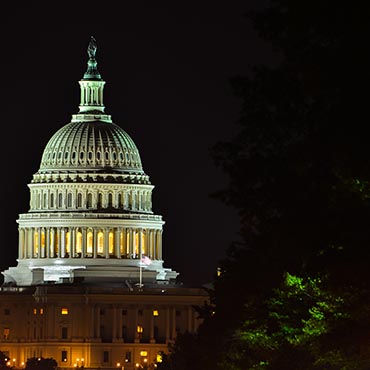Congress averts shutdown with spending deal

Both chambers of Congress came to terms on some disputed spending deals, allowing votes to proceed on a continuing resolution to keep the government funded through Dec. 9.

Congressional leaders crafted a bipartisan deal on Sept. 28 to continue government operations when the new fiscal year starts. The agreement deferred a crisis on federal spending until the next deadline, which is Dec. 9.
The legislative pact was a reminder of the power of 218 votes, which are essential to accomplish anything in the House. With the Republican majority splintered on the spending bill and many of its members unwilling to vote for the measure, GOP leaders had no choice but to accommodate Democrats’ demands if they wanted to avoid a pre-election government shutdown.
House Speaker Paul Ryan (R-Wis.) and Minority Leader Nancy Pelosi (D-Calif.) expedited the pre-election bargain when they reached consensus on a separate measure to approve funding to help Flint, Mich., clean lead from its water supply. Democrats didn't get everything they wanted, for now at least. But the promise to wrap up the water bill after the Nov. 8 election was sufficient for them to drop their immediate objections.
"I thank the Speaker for today's vote, which will begin to narrow the gap between the House and Senate," Pelosi said. She added that she had received a commitment from Senate leaders of both parties that they will insist that the final agreement include the earlier and more expansive Senate-passed plan to help Flint.
With the House's approval of the separate legislation for federal water projects, the Senate passed the 10-week spending extension by voice vote and without additional debate on Sept. 28. Showing that Congress can move quickly when its members see an opportunity to head home, the House was expected to pass the spending bill later in the day.
White House officials said President Barack Obama will sign the bill when it reaches his desk. But an accompanying statement acknowledged that nobody got everything they wanted in the latest deal. Officials expressed disappointment over continuation of "a provision that would bar the Securities and Exchange Commission from taking action to increase transparency in public companies' political spending" and with the Senate's failure to confirm Obama's nominees, who would provide a quorum for the board of the Export-Import Bank.
Largely overlooked in the scuffle over aid for Flint was that congressional negotiators earlier reached agreement on a key part of the spending bill to provide funds that will address the risks of the Zika virus.
The short-term deal paved the way for further action on fiscal 2017 spending when lawmakers return to Capitol Hill for the lame-duck session. Those prospects will be influenced by the outcome of the Nov. 8 election. In any case, it's likely that the Dec. 9 spending deadline will pose new challenges for Congress.
NEXT STORY: GSA, Dun & Bradstreet agree on wider DUNS use


